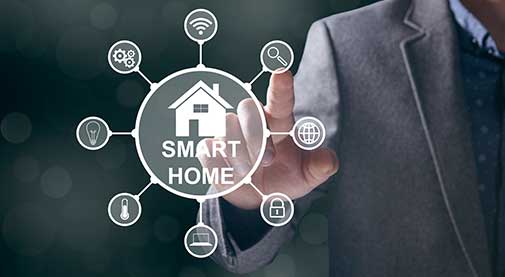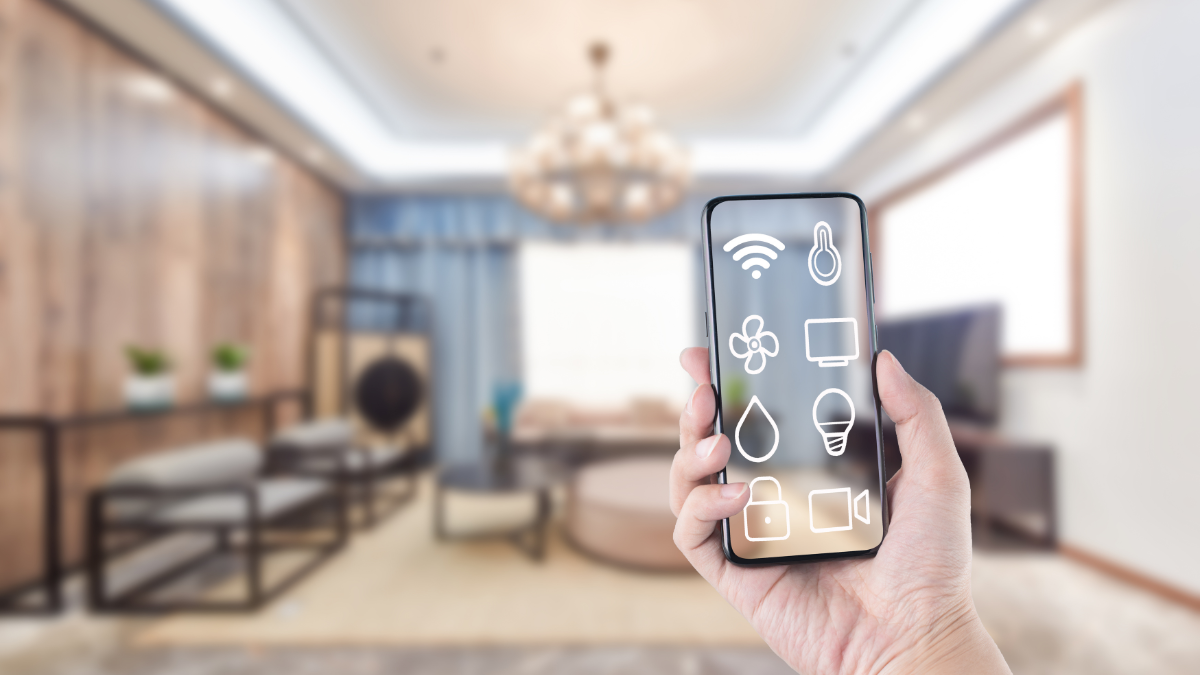The concept of smart homes and health monitoring is no longer confined to science fiction. With advancements in technology, these systems are becoming increasingly prevalent, offering unprecedented levels of convenience and security. For homeowners and businesses, the integration of smart technology with health monitoring capabilities offers a way to improve quality of life and enhance safety.

What are Smart Homes?
Smart homes use internet-connected devices to enable remote management and monitoring of systems and appliances such as lighting, heating, and security. By utilizing these technologies, homeowners can achieve greater control over their home environment, often reducing energy consumption and costs in the process. Learn more about the essentials of smart home technology to get started.
The Role of Health Monitoring
Health monitoring in smart homes involves the use of devices that track and monitor health metrics such as heart rate, blood pressure, and sleep patterns. These systems can alert users to potential health issues before they become serious, offering a proactive approach to personal health management. This technology is particularly beneficial for elderly individuals or those with chronic health conditions, providing peace of mind for both the users and their families.
Benefits for Homeowners
For homeowners, the combination of smart homes and health monitoring provides several key benefits. Firstly, it offers a higher level of safety and security. Smart sensors can detect unusual activity or potential hazards, such as gas leaks or fires, and alert homeowners immediately. Additionally, health monitoring systems can provide vital information that helps individuals maintain their health, potentially reducing medical expenses in the long run. Explore how fitness tech is integrated into smart homes for a healthier lifestyle.
Advantages for Businesses
Businesses can also leverage smart home technologies and health monitoring to improve employee well-being and boost productivity. For example, smart office systems can optimize lighting and temperature to create a more comfortable working environment. Health monitoring can be used to track employee health metrics, encouraging healthier workplace habits. This can lead to reduced absenteeism and increased efficiency. Discover how voice control enhances smart environments in business settings.
Challenges and Considerations
Despite the many benefits, there are challenges associated with implementing smart home and health monitoring systems. Privacy concerns are a major issue, as these systems collect and store large amounts of personal data. It's crucial for users to ensure that their devices are secure and that data privacy measures are in place. Additionally, the cost of smart home technology can be prohibitive for some, although prices are gradually decreasing as the technology becomes more widespread.
It's important to conduct thorough research and planning before integrating these technologies into your home or business. Check out this smart home checklist to ensure a smooth setup process.
The Future of Smart Homes and Health Monitoring
As technology continues to advance, the potential applications for smart homes and health monitoring are vast. We can expect to see further integration of artificial intelligence, which will enable systems to learn user behaviors and preferences, further enhancing efficiency and personalization. The future promises more intuitive and interconnected systems, making everyday life safer, more convenient, and healthier.
For a deeper dive into how smart homes are changing the way we live, consider reading about smart home wellness devices and their impact on daily routines.

FAQ Section
What is the primary benefit of smart homes for homeowners?
Smart homes offer enhanced security, energy efficiency, and convenience. They allow homeowners to control and monitor their home environment remotely, which can lead to cost savings and improved quality of life.
How can health monitoring in smart homes benefit the elderly?
Health monitoring systems can track vital signs and alert caregivers or family members in case of potential health issues, providing peace of mind and potentially preventing emergencies.
Are there privacy concerns with smart home technology?
Yes, privacy is a significant concern, as smart home devices collect and store personal data. It's essential to ensure that devices are secure and that data protection measures are in place.
For more insights on smart home technology, explore our article on smart homes and the elderly to see how technology is tailored to their needs.

